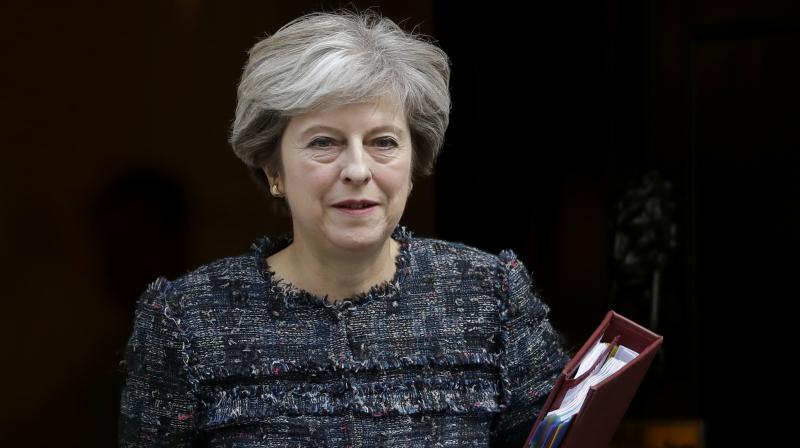London Diary: Leadership battles conquer Brexit
The polls seem to be supporting this though one is now increasingly doubtful of the veracity of these numbers.

This is the party conference season — and after a rapturous reception for Labour leader Jeremy Corbyn we await the decimation of Prime Minister Theresa May, at the Manchester conference for the Tories. To be honest, no one can believe the way the winds are blowing in Mr Corbyn’s direction: he is literally walking on water (indeed the cartoons have had a field day showing him doing just that) — with the party faithful, and a remarkable number of young people gathering around him. Thus far, we have had a wave of right-wing parties rising all over the world. Will Labour, under “JC”, the new messiah, buck the trend? On the other hand, Ms May is facing knives all around her, and the sharpest attack is coming from Boris Johnson, the foreign secretary, who feels the momentum is with him. The polls seem to be supporting this — though one is now increasingly doubtful of the veracity of these numbers. We are not sure if people are using the polls to send a message to the government, or do they really plan to support another wild-haired blonde leader. (We have enough trouble from the one across the pond.)
Mr Johnson is supposed to use the Manchester conference to assert his leadership — while it appears that Ms May will try to hang onto hers. Thus, the debate on Brexit is rather retreating into the distance, as leadership quarrels beset the Conservatives. Interestingly, some of the reports about Ms May’s reaction to the disastrous election results a while ago talk in detail about her breaking into tears ever so often. I wonder if there are any male candidates who have been recorded bursting into tears upon a hung Parliament. Or, as we now hear more of Hillary Clinton’s reaction to her defeat at the US polls, this is a very feminine thing to do? As more women leaders come onto the world stage, we must get used to public displays of emotion. And why not?
Recently, I was asked to be a chief guest at the Women’s India Association AGM in London. The oldest women’s organisation in the UK of its kind, set up by Vijaya Lakshmi Pandit, it was indeed an honour, because the organisation not only has some very eminent women as members, it is also doing great charitable work in the UK and in India — through a wide swathe of activities. It is supporting educational projects in India and also helping organisations who feed the hungry in the UK. Led by young and energetic women like Anita Martins, Sangeeta Talukdar and Frances Malhotra, among many others — they work hard at raising money and then distribute it to worthy charities. Interacting with such a vibrant set of Indian women is always enjoyable — and the best part was that they also bought copies of my books, and the money from the sale will also go to charity... as they say every little bit helps! Salute!
The DSC prize for South Asian literature was set up by Surina Narula and her family some time ago, as they realised the need for an award which recognised the growing talent amongst South Asian authors. Often these authors are overlooked, when prizes such as the Booker are being handed out. In any case, awards such as this are very crucial in nurturing new talent — and this time in an engrossing function at the LSE, hosted by the director of the South Asia Centre, Mukulika Banerjee, the shortlisted authors were announced and these included Aravind Adiga, who had actually won the Booker. But interestingly, there were also debut authors, such as Anjali Joseph, who is Mumbai born, but London based.
The jury was headed by Ritu Menon — well-known author. The book that I am longing to read is by Stephen Alter, In the Jungles of the Night, all about Jim Corbett. Having been to Corbett Park, one often wondered about the man who set it up — an amazing visionary! As the suspense about the shortlist built up during the evening, we enjoyed a feisty debate about film, literature and television in which the participants were filmmakers Steven Bernstein, Gurinder Chadha, Michael Wood and author Kunal Basu. Even though the panel was distinctly tilted towards those who work in the visual medium, Mr Basu managed to hold his end up — he pointed the rise of South Asia as book readers. Whilst the others on the panel admitted a struggle with financiers and distributors when attempting to do films or TV shows with Asian characters — Mr Basu did mention that possibly one of the best places to make films or be published is India, with a huge audience — and really there is little need to worry about the rest of the world... I could not agree with him more! The time has arrived to write books and make films from the Indian point of view, and not be concerned about “phoren” recognition. What do you think?

